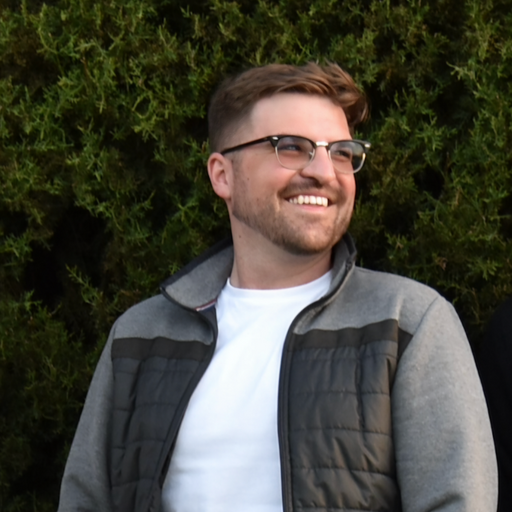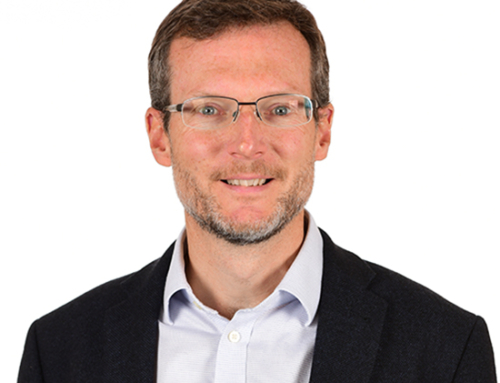The digital tech that transformed the retail industry is being harnessed to elevate the patient experience in the operating room (OR).
Thomas Knox is the visionary founder and CEO of VitVio, a company spearheading healthcare transformation. His innovative solution integrates advanced computer vision and AI technologies to tackle some of the sector’s most critical challenges. As a result, it will improve the quality of care, increase throughput and reduce delivery costs.
The OR may account for up to 40% of a hospital’s costs and 60-70% of its revenue (Rothstein & Raval, 2018). VitVio’s use of cameras and sensors in the OR allows hospitals to track people’s movements and equipment autonomously to assess processes. This, in turn, generates real-time data that can be used to ensure the OR is a safer and more efficient space.
Autonomous tracking and analysis facilitate timely actions to reduce the risk of cancellation or unplanned overtime, such as preparing the next patient as surgery nears completion. This means hospital teams can shift focus from cumbersome data logging to ensuring optimal patient care.
Knox believes his vast experience in digital solutions for other sectors outside MedTech, including autonomous retail stores, has helped put VitVio in a strong position to enhance healthcare delivery and efficiency.
A self-taught product executive with an extensive career in AI, IoT and start-ups, Knox is an industry disruptor. At 29, he has already worked with some impressively innovative and prosperous companies in numerous sectors – AiFi, VusionGroup and Kiwi to name a few – taking start-ups through all stages of development on mobile and web-based applications, hardware integrations, computer vision, and sensor fusion technologies.
He explains: ‘I started at Kiwi in its early days, working out of a converted apartment as an analyst. It wasn’t long before I was promoted to lead the innovations team, where our focus was on driving revenue and improving customer experience. I led that team for three and a half years, during which Kiwi experienced phenomenal growth. We were part of the Fast 50 for three years in a row. In 2017 alone, we saw over 7,000% growth and were named the start-up of the year for the Fast 50. This contributed to a total of around 37,000% growth.
‘Following my time at Kiwi, I became the Head of Product for AiFi, focusing on autonomous stores. I held that role for three and a half years, joining before we had a single store. We scaled up to surpass Amazon’s number of autonomous stores, making us the world’s largest autonomous store vendor.’
Spending ‘many sweaty days working out of the CEO’s garage in Silicon Valley’, Knox remembers it as ‘a thrilling experience’ working with major players Aldi, Carrefour and Dollar General.
Looking back, he recalls: ‘It was at AiFi that I truly honed my skills with computer vision solutions. Many of our team members come from AiFi, and our entire team either hails from AiFi or Standard Cognition, the second biggest player in the field, where Dr Peter Rennert, our CTO, was an executive.
‘After my time at AiFi, I joined Vusion Group, one of the biggest retail tech players globally. Vusion is known for its electronic shelf labels, the e-paper display labels you see in stores that can be changed remotely. As the Global Vice President of Product for VusionGroup, I oversaw five different business units reporting directly to the group’s CTO.’
Over two years, it grew 40% yearly, achieving over a billion dollars in booked revenue. At one point, it was manufacturing almost three million devices a week.
‘While at Vusion, I began working on VitVio in the background. Once we secured funding and determined it was the right path forward, I left Vusion to dedicate myself fully to leading VitVio.
However, his career highlight has been applying this extensive AI and computer vision experience – particularly from his time at AiFi – to the healthcare sector. And this has been as much a personal journey as a professional one. Two years ago, his father passed away from heart failure, leading him to consider how he could have a more meaningful impact, drawing on his skillset. The father and son had registered VitVio before his father’s death, and Knox considers the name a lasting legacy.
Partnering with Dr Peter Rennert (CTO, PhD from UCL in Computer Vision), Aleks Pajewski (CPO and LSE graduate) and Maks Kozarzewski (CCO, Forbes 25 under 25, engineering graduate from Edinburgh), the co-founders shared a vision: to address critical issues in healthcare by leveraging technology. The premise was to fix a significant problem of overworked staff and extensive patient backlogs.
Knox says this is particularly the case in the US and UK, with the need to address ageing population challenges, rising costs and staff shortages, which are also relevant globally.
So, have they encountered resistance in their bid to transform efficiency in ORs? Surprisingly, not. Fearing that the technology would be perceived as intrusive or come with ‘big brother’ connotations, he notes a remarkably positive shift in attitudes post-COVID, with hospitals becoming more open to innovative solutions. He believes that healthcare perceptions of AI and technology are changing, particularly in surgical operations.
‘Our goal is to help healthcare teams. We have no intention or desire to put additional pressure on them. We want to take the manual, tedious work of logging data off their plate so they can focus on what’s important – the patient.’
Research indicates that hospitals can reduce turnaround times by up to 45% with proper planning and optimisation. By improving scheduling and staff allocation through automated surgery progress monitoring and real-time runway estimates, VitVio enables hospitals to perform more surgeries with fewer resources, crunching costs and increasing profitability.
Knox says performing just one additional hour-long surgery daily can increase an operating suite’s annual profitability by $300,000.
He explains: ‘The focus is on efficiency. Hospitals face massive backlogs and margin crunches, putting pressure on them like never before.
We also provide comprehensive training and ongoing technical support to minimise the impact on hospital IT departments, ensuring the system remains low-maintenance. We are building on existing research and automating processes to create a robust healthcare model.’
Emphasising cooperative solutions that enhance patient care without exploiting staff, it works with hospitals to ensure practical, scalable solutions that improve efficiency. The aim is to extend the standardisation and efficiency model globally, making it easily adaptable across different healthcare systems.
VitVio’s system also integrates smoothly with existing hospital infrastructure. The company works closely with hospital IT departments to ensure an efficient and disruption-free integration process, building strategic partnerships with key players to help facilitate easy adoption. Additionally, the technology is nonintrusive, with cameras and sensors installed unobtrusively and operating quietly in the background. It prioritises the security and privacy of client data, adhering to all relevant data security protocols and complying with HIPAA and GDPR guidelines. This commitment ensures hospitals can trust VitVio with their sensitive information.
Knox says: ‘We’ve heard some amazing stories… if you implement something like this, you can help retain staff, keep them happier and drive efficiency. No one loves doing admin work; they want to stay focused on the patient and have a predictable day.’
VitVio is helping make that vision a reality.



